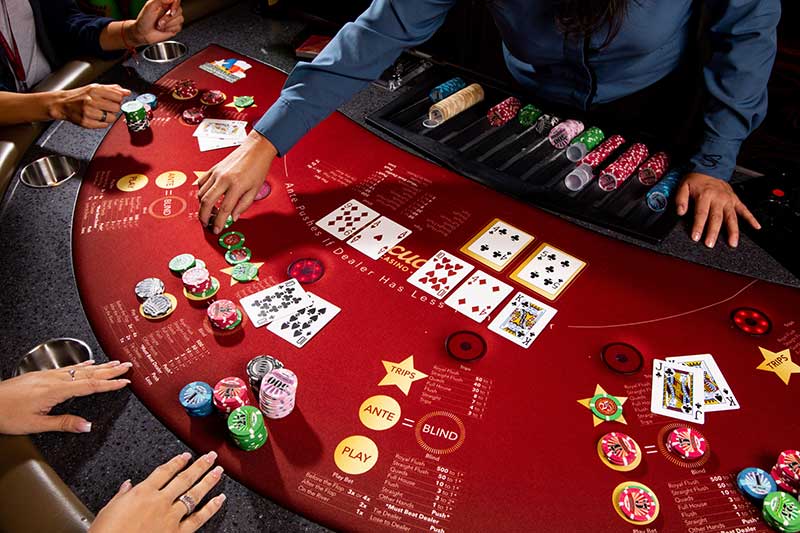Poker is a fascinating game of skill, strategy, and calculated risks. While Texas Hold’em has gained immense popularity, Omaha Poker stands out as a thrilling alternative that tests players’ decision-making abilities and card analysis skills. In this article, thinkgirl will delve into the world of Omaha Poker, exploring its rules, strategies, and techniques to help you master this captivating game.
Introduction
Omaha Poker is a community card game that shares similarities with Texas Hold’em. However, there are some key differences that make Omaha a unique and challenging variant. In Omaha, each player is dealt four private “hole” cards, and the goal is to make the best possible hand using exactly two of these hole cards, along with three community cards.
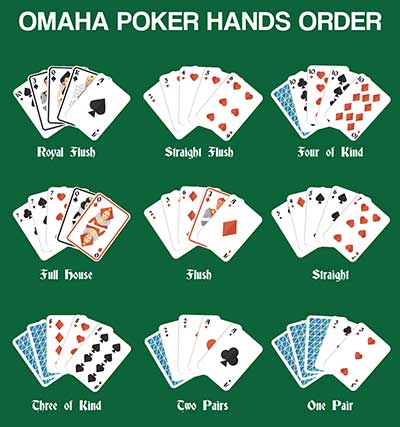
Understanding Omaha Poker
Basic Rules and Gameplay
Omaha Poker follows the same basic rules as Texas Hold’em, with a few variations. The game typically features a small blind and a big blind, just like in Hold’em. The betting rounds include pre-flop, flop, turn, and river, and the objective remains the same: to win the pot by having the highest-ranking hand or by making opponents fold.
Key Differences from Texas Hold’em
One significant difference between Omaha and Hold’em is the requirement to use precisely two hole cards in combination with three community cards to form a hand. This aspect greatly impacts hand values, strategy, and the overall dynamics of the game. With more cards in play, the possibilities and complexities increase exponentially, adding depth to decision-making.

Pre-Flop Strategies
Starting Hand Selection
The first key decision in Omaha Poker occurs during the pre-flop stage when players assess the strength of their starting hands. Unlike Hold’em, where strong pocket pairs often dominate, in Omaha, players should focus on hands that have good connectivity, suitedness, and potential to form powerful combinations.
Evaluating Hand Strength
In Omaha, hand strength is determined by factors such as the number of connected cards, the presence of suited cards, and the ranking of the cards themselves. Understanding hand rankings, potential draws, and the concept of nut hands is crucial for making informed decisions throughout the game. Additionally, being aware of blockers, which are cards that prevent opponents from having certain hands, can give you a strategic advantage.
Positional Considerations
Position is vital in Omaha Poker, just as it is in Hold’em. Being in a later position allows you to gather more information about your opponents’ actions before making your own decisions. This information can help you gauge the strength of their hands and adjust your strategy accordingly. Playing more cautiously in early positions and more aggressively in late positions can be a winning approach.
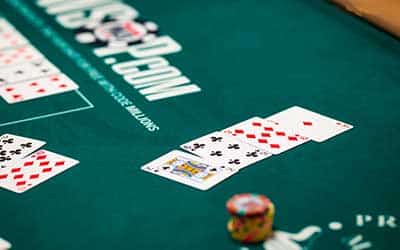
Post-Flop Strategies
Assessing Board Texture
After the flop, evaluating the texture of the community cards is crucial. Board texture refers to the composition and potential of the flop, turn, and river cards. Assessing whether the board is coordinated or disconnected, whether it contains potential flush or straight draws, and how it interacts with your hole cards will guide your decisions on whether to bet, raise, or fold.
Drawing Hands and Pot Odds
Omaha is a game of drawing hands, where players often chase draws to improve their hands. Understanding pot odds, which are the ratio of the current pot size to the cost of a contemplated call, is essential for making informed decisions. Calculating pot odds allows you to assess the profitability of chasing draws and determine whether it is mathematically correct to continue in a hand.
Bet Sizing and Aggression
In Omaha Poker, bet sizing and aggression play significant roles in shaping the outcome of hands. Well-timed bets and raises can apply pressure on opponents, forcing them to make tough decisions. Balancing your bet sizes with the strength of your hand, the board texture, and your opponents’ tendencies is essential to maximize your winnings and minimize losses.
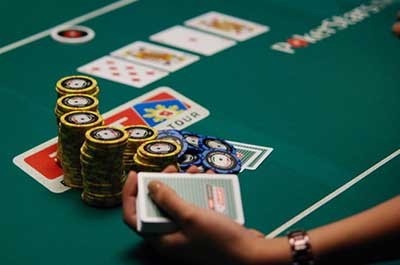
Playing the Turn and River
Narrowing Ranges and Hand Reading
As the community cards continue to unfold on the turn and river, narrowing down your opponents’ hand ranges becomes crucial. By carefully observing their betting patterns, considering the range of hands they could be playing, and eliminating unlikely combinations, you can make more accurate hand-reading assessments. This information helps you make optimal decisions and exploit your opponents’ weaknesses.
Value Betting and Bluffing
Knowing when to extract value from your strong hands and when to bluff is a skill that separates successful Omaha Poker players from the rest. Identifying situations where you have a high likelihood of having the best hand and extracting maximum value through well-calibrated bets is key. Conversely, strategically bluffing in the right situations can keep your opponents guessing and increase your profitability.
Adjusting to Stack Sizes
Stack sizes influence the dynamics of the game and should impact your decision-making process. When you have a deep stack, you can exert more pressure on your opponents and afford to take calculated risks. Conversely, when your stack is short, you may need to adjust your strategy and focus on preserving chips or making aggressive moves to accumulate chips quickly.
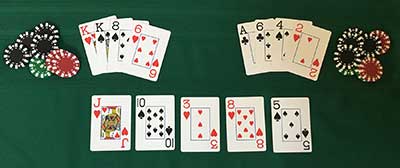
Advanced Techniques
Omaha Hi-Lo Split
Omaha Hi-Lo Split, also known as Omaha Eight or Better, introduces an additional layer of complexity to the game. In this variant, the pot is divided between the best high hand and the best low hand (if there is one). Understanding the rules and strategies specific to Omaha Hi-Lo Split opens up new opportunities for success and strategic decision-making.
Reading Opponents’ Tells
Poker is not just about the cards; it’s also about reading your opponents. Observing their physical and verbal cues, also known as tells, can provide valuable information about the strength of their hands. Look for patterns, changes in behavior, and inconsistencies to gain insights into their thought processes. Mastering the art of reading tells can give you a significant edge at the table.
Exploitative Strategies
Exploitative strategies involve adjusting your play based on the specific tendencies and weaknesses of your opponents. By identifying and exploiting their playing styles, you can gain a significant advantage. For example, if you notice that a player is overly aggressive, you can trap them with strong hands or make well-timed bluffs to capitalize on their tendency to overcommit to pots. Adapting your strategy to exploit the weaknesses of your opponents is a key skill in mastering Omaha Poker.

Bankroll Management
Setting Limits and Goals
Bankroll management is crucial for any serious poker player. Establishing limits on the amount of money you are willing to risk and setting achievable goals for your sessions help maintain discipline and prevent excessive losses. Divide your bankroll into smaller units, and only play with a portion of it in each session to minimize the risk of ruin.
Understanding Variance
Poker is a game of skill, but it also involves an element of luck. Variance refers to the natural fluctuations in your results due to luck. Understanding and accepting variance is essential to avoid tilting and making emotionally driven decisions. A solid bankroll and mindset can help you weather the swings and maintain a long-term perspective.
Managing Risk and Losses
No matter how skilled you are, losses are inevitable in poker. Managing your risk and losses effectively is a critical aspect of bankroll management. Avoid chasing losses by playing above your limits or making desperate moves. Instead, evaluate your play objectively, learn from your mistakes, and make adjustments to improve your overall performance.

Mindset and Mental Game
Patience and Discipline
Maintaining patience and discipline are vital traits for successful poker players. Avoid impulsive decisions and chasing after unlikely hands. Stick to your strategies, even during losing streaks, and trust the process. Patience allows you to wait for favorable opportunities, while discipline ensures that you make rational choices based on logic rather than emotions.
Emotional Control
Emotions can be both a player’s best friend and worst enemy. In moments of frustration or excitement, it’s crucial to remain composed and make rational decisions. Being aware of your emotions and managing them effectively will prevent impulsive moves and help you stay focused on the long-term goal of profitability.
Continuous Learning and Improvement
Poker is a game that constantly evolves, and staying ahead of the competition requires a commitment to continuous learning. Study books, articles, and online resources to expand your knowledge of strategy and techniques. Analyze your own gameplay, review hand histories, and seek feedback from experienced players. Embrace a growth mindset and constantly strive to improve your skills.
Immerse Yourself in the Excitement of Live Dealer Games at Ufabet1688
Conclusion
Mastering Omaha Poker is a journey that combines strategic thinking, analytical skills, and a solid understanding of the game’s intricacies. By following the strategies and techniques outlined in this article, you can elevate your Omaha Poker game to new heights. Remember to practice, remain disciplined, and adapt your strategies to different situations and opponents. With dedication and perseverance, you can become a formidable Omaha Poker player.
FAQs
What is the difference between Omaha Poker and Texas Hold’em?
In Omaha, players are dealt four hole cards instead of two, and they must use exactly two hole cards and three community cards to form their hand. This leads to more possibilities and complexities in Omaha compared to Texas Hold’em.
How important is position in Omaha Poker?
Position is crucial in Omaha, just like in Hold’em. Being in a late position allows you to gather more information about your opponents’ actions and make more informed decisions. It provides a strategic advantage in assessing the strength of their hands.
What is the best starting hand in Omaha?
The best starting hands in Omaha are those that have strong connectivity, suitedness, and potential to form powerful combinations. Hands with double-suited aces and kings, along with connected cards and suited connectors, are generally considered strong starting hands in Omaha.
Can you explain the concept of pot odds?
Pot odds are a mathematical concept that helps players determine the profitability of making a call or a bet. It is the ratio of the current size of the pot to the cost of the contemplated action. By comparing the pot odds to the odds of completing a specific hand, players can make informed decisions about whether to continue in a hand.


